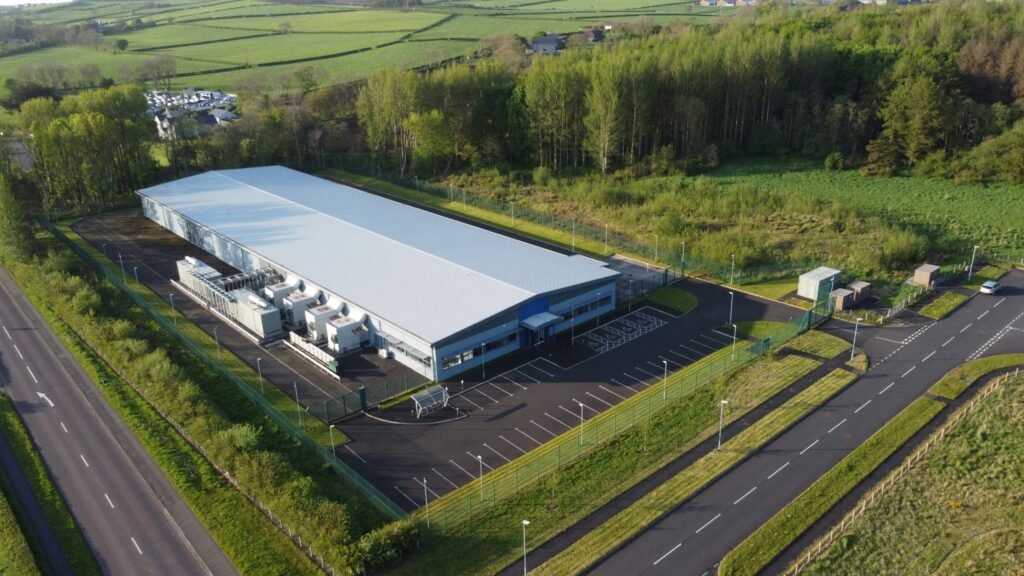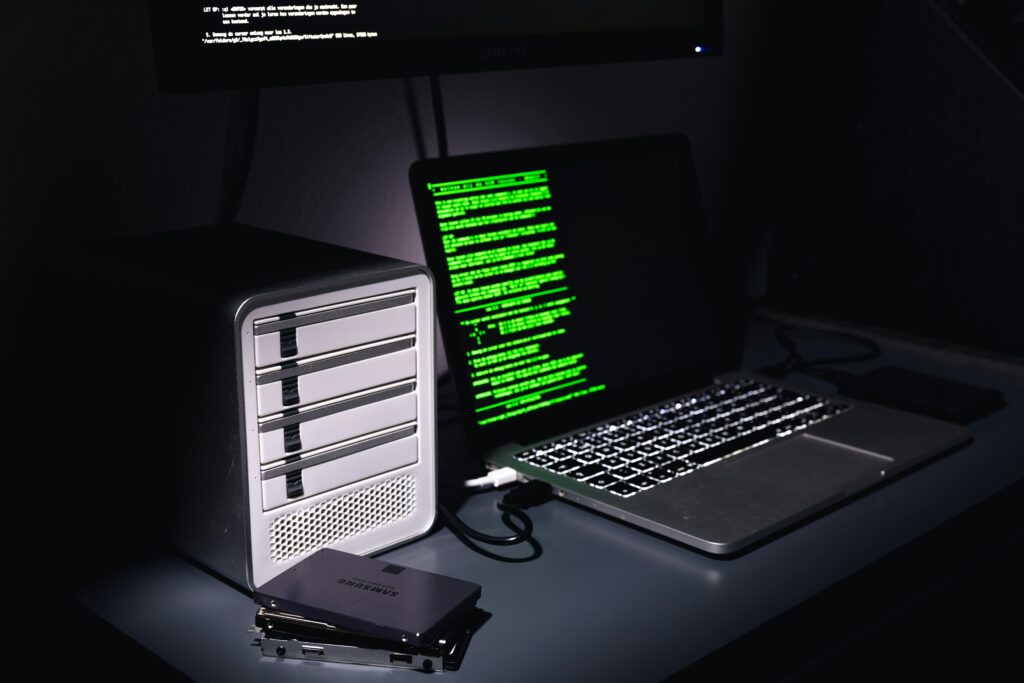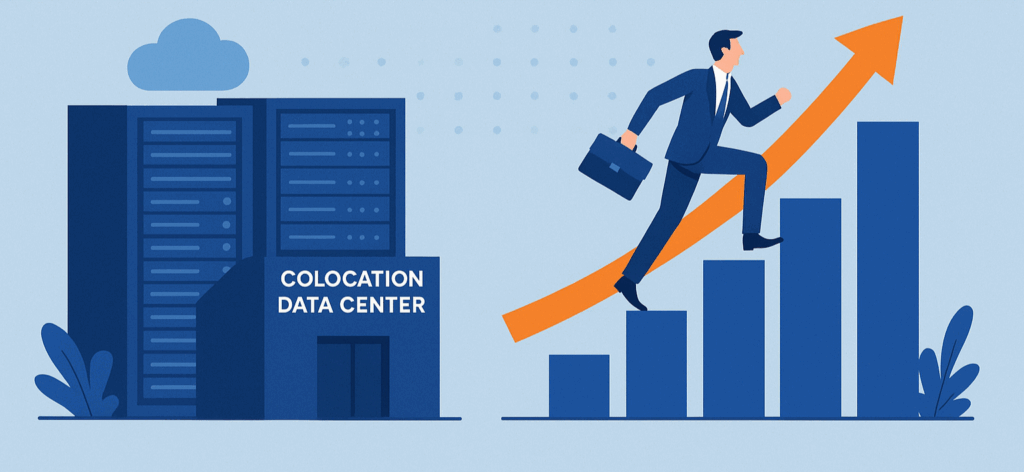Data Security in Colocation Data Centers
Colocation data centers offer enhanced security measures to protect customer data and equipment. By providing a secure environment where organizations can manage their servers and IT equipment, colocation data centers can ensure protection against unauthorized access or other security threats.

Data Security – Key Measures
Physical security measures, network and cybersecurity protocols, and regulatory compliance are all components of the complex system of data security in a data center. These techniques secure data while also building client trust, enhancing colocation providers’ role as dependable data protection partners. Let’s explore these key measures and best practices to keep in mind when choosing a colocation provider.
Physical Security Measures
Colocation data centers are designed with layered physical protection to prevent unauthorized access to the actual hardware. This approach entails literally installing a series of layers of security that add more protection as you move closer to the actual server. These include:
- Fencing around the perimeter
- 24/7 On-site security guards
- Monitoring Systems
- Restricted Access to Buildings
- Mantrap Doors
- Biometric Verification
- Cage-Level Security and Cabinets
- Access Controls for Visitors
- Monitoring of the Environment and Risks
- Fire Suppression Systems, HVAC systems, and flood detection sensors are employed to protect data from natural disasters.
These layers reduce the risk of physical breaches by ensuring that only authorized personnel can access critical equipment.

Discover colocation providers that meet the highest data protection standards with OCOLO.
Network and Cybersecurity Protocols
A colocation data center must be protected with network-level security that safeguards valuable data assets, blocks cyber risks, and protects customer data with advanced firewalls, network segmentation, and DDoS mitigation tools.
Advanced firewalls – often supported by intrusion detection and prevention systems (IDS/IPS) and DDoS mitigation tools – are a critical front-line strategy to block attacks. A firewall is a network security device that tracks and filters incoming traffic and monitors outbound traffic according to specific and detailed data security standards the organization sets in advance .
Network segmentation is another foundational element of colocation cybersecurity It’s used to divide the computer network into smaller parts, each with its own access rules. If a hacker or virus breaches one segment of a network (say, one company’s set of servers), it can’t easily access other parts of the network, avoiding further damage to data and systems.
Last but not least, companies must follow clear and consistent Data Security protocols. They must universally implement and maintain policies and processes that safeguard data privacy, integrity and availability, including encryption, backup and access management.

Regulatory Compliance for Colocation Data Centers
Data center security is not just a priority for data centers, it’s a regulatory requirement. Therefore, all data centers must rigorously adhere to a lengthy and strict set of regulations and standards in order to stay in good industry standing and continue to do business.
All data centers must meet compliance requirements relevant to their industry and location. The most common are the GDPR (General Data Protection Regulation) for any business managing information within the EU, the PCI DSS (Payment Card Industry Data Security Standard) that applies to any organization anywhere that stores, processes or transmits credit card data and the ISO 27001 (Information Security Management System), which applies to any business worldwide that wants to implement a formal security framework. There are many others, including the SOC 2, ISO 27001 and ISO 22301.
In a constantly evolving regulatory environment, maintaining data center compliance and regulations improves your company’s operational effectiveness and reputation while protecting sensitive data.
One of the many benefits of OCOLO is that our Search tool allows you to refine the parameters to evaluate providers by security, compliance and infrastructure specs. This saves time and effort in homing in on the perfect provider match. If you’re a data center looking to bolster your physical and network security infrastructure, OCOLO has you covered there as well, with our Resources & Partners page, where you can find whatever ancillary service provider necessary to improve your preparedness and competitiveness in the space.
Colocation Data Centers Improve Data Security
To sum up: for true enterprise-wide data security, businesses are best served by colocation data centers, which offer a controlled environment with advanced firewalls, DDoS protection, layered physical security, around-the-clock monitoring and stringent access controls ideal for providing complete, layered protection.
Colocation is simply the better, safer choice for businesses that need reliable, secure infrastructure without the difficulties or expense of managing it themselves, while remaining compliant with both the data and regulatory requirements for today’s industry.
Frequently Asked Questions
Typical measures include firewalls, IDS/IPS, network segmentation, DDoS mitigation and encrypted data transfers. These reduce the risk of data breaches and unauthorized access.
Yes. Leading providers maintain certifications like SOC 2, ISO 27001, PCI DSS and GDPR, helping businesses stay compliant without handling it internally.
Key factors include physical and network security, compliance certifications, uptime SLAs, redundancy systems, scalability and location.
